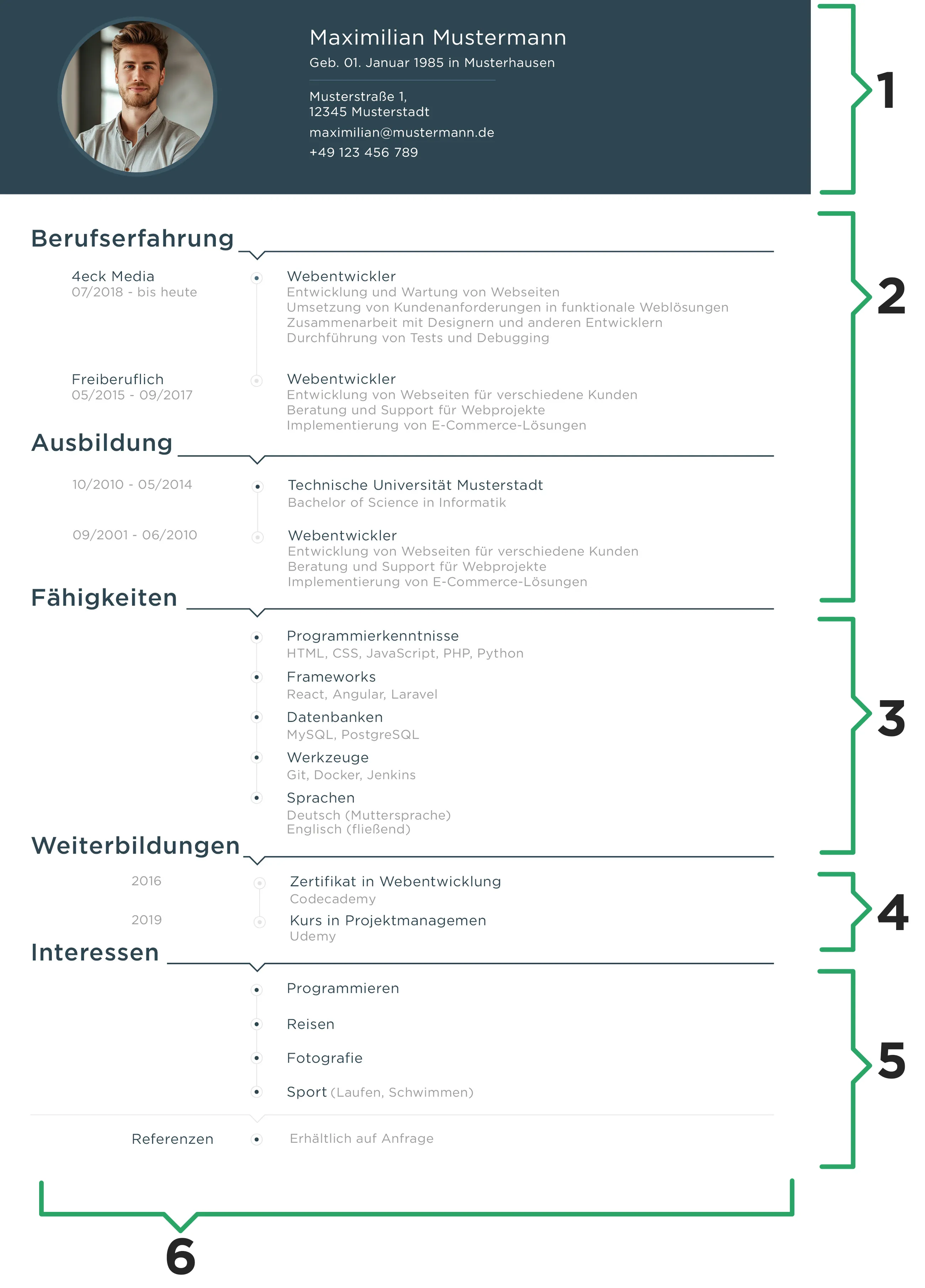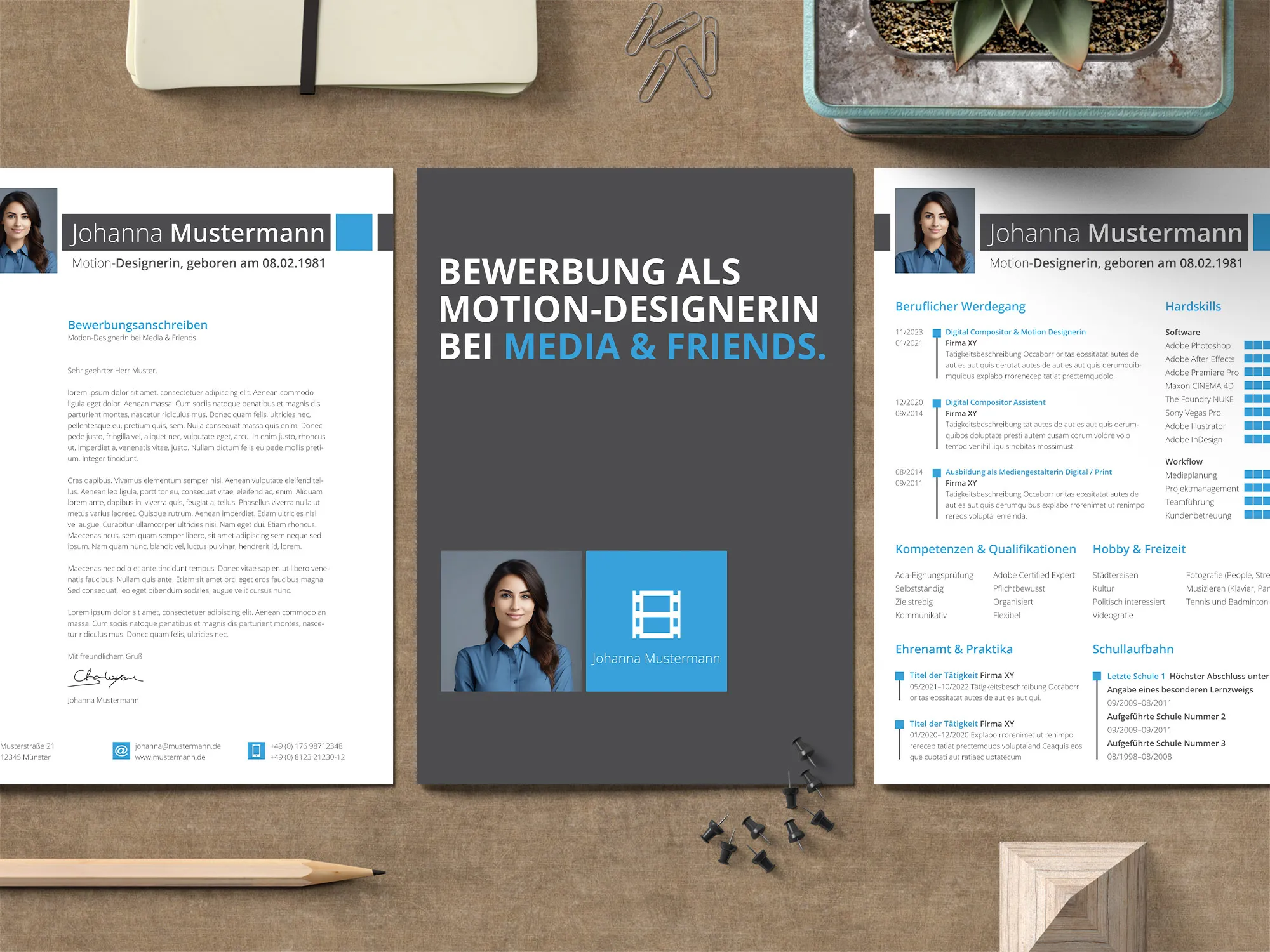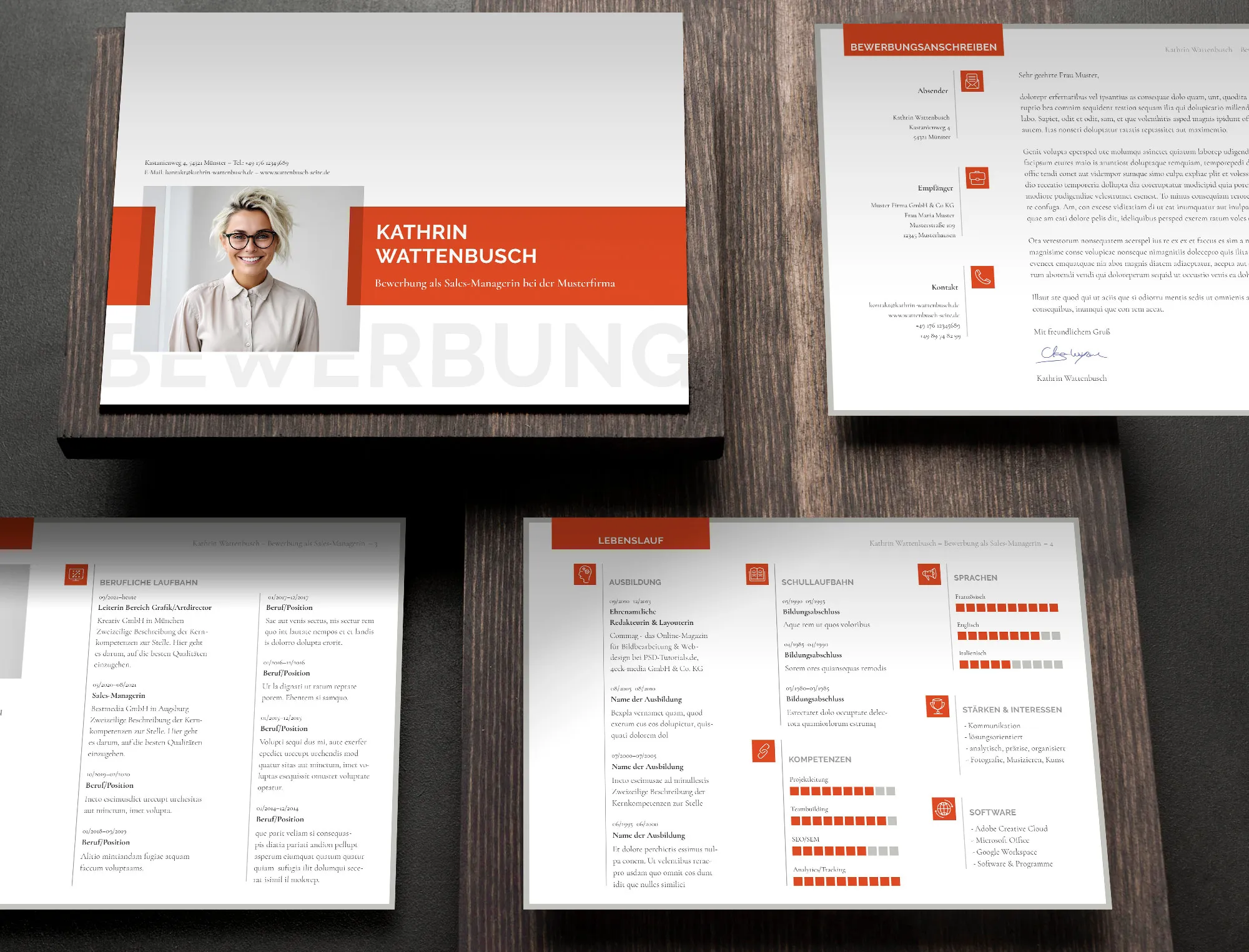How to create an attractive CV to make a positive impression
You want to create an attractive CV? Great. You've come to the right place. Before we start with the CV, let's focus on the topic of job applications. The application is your first chance to make a good impression on a potential employer. It's not just a list of your skills and experience, but an important tool in your job search. Your chances of being invited to an interview depend on how clearly and professionally you present your achievements and qualifications - even in comparison to your competitors.

It's never too late to become who you want to be. I hope you live a life that you're proud of, and if you find that you're not, I hope you have the strength to start over.
F. Scott Fitzgerald
Unlike perhaps in other countries, in Germany particular attention is paid to the details: the formatting, the structure and the content of an application. Each element plays an important role in building your professional image. A separate component of this is the CV , which is not only a list of skills, knowledge and previous jobs, but also a way to communicate to potential employers your unique skills that can add value to their company. I would like to tell you about the correct structure of a CV and its importance below.
Table of contents
What is the CV
The CV is a standard document that is crucial for career advancement. It consists of several important sections, each of which plays an important role in shaping the applicant's professional image.
The structure of the CV
Recent research shows that on average, recruiters only spend 30 seconds reviewing 90% of CVs and only 2% of CVs are read in full. Overall, this gives an average of 43 seconds for your CV. With this in mind, it can be said that the CV should be perfectly structured so that a potential employer can quickly grasp the most important aspects of an applicant's professional career and personal qualities. It is best to use well-structured application templates in table form. Such a presentation allows the employer to quickly find all the necessary information that may lead to an invitation for an interview.

- Personal details
- Professional experience and training
- Knowledge and skills
- Further training
- Interests and hobbies
- No more than two pages
What data should be added to the CV to get noticed?
To draw the recruiter's attention to your CV application, focus on details that clearly reflect your professional qualifications and meet the requirements of the position. The first thing you should do is get your contact details right. Then, don't forget to include your professional skills, especially those that are relevant to the position. Then add an education section that includes information about your academic achievements and qualifications. Make sure you detail your work experience and show specific achievements and results in previous jobs. End your resume with a short section on language skills and other specialized skills that may be relevant to the position. This information not only emphasizes your professionalism, but also demonstrates your willingness and ability to make a valuable contribution to a potential company. Now you know how to make your application more attractive. We have more tips for you on the resume.
Resume: a written exaggeration of only the good things a person has done in the past, as well as a wish list of the qualities a person would like to have.
Bo Bennett
Contact information in the application
Includes your first and last name, your current address where you can be reached by mail, your phone number, your email address and links to social media profiles.
Skills relevant to the open position
Describe your experience in a similar position and your achievements. Also describe the knowledge, skills and abilities required for this position, including their level.
Ready for the job of your dreams? Our resume templates on TutKit.com will make your application stand out. See which one suits you now!
Information about your studies
You should submit them in chronological order, starting with the last educational institution you graduated from. Make sure you indicate the level of qualification and specialization you have acquired.
Information about your work experience on your CV
This is one of the most important sections of the CV and should also be submitted in chronological order, starting with the last job you worked at. I recommend that you include not only years, but also specific months. Describe the job or position you held and list the most important and significant tasks you completed in a bulleted list below. P.S. If you have taken breaks of more than one month, tell us why.
The following reasons would be suitable: Pregnancy, battling an illness, obtaining another academic degree, internship at a well-known company, sabbatical or time abroad. The last point, if it is longer, is better written in a block.
Information about your social experience
A recent trend in recruitment is to pay attention to the social aspects of your life. If you have such experience (e.g. working 8 hours a week as a free driver for the blind), add it as a separate point to your resume. If you don't have such experience, just leave it out.
There are no secrets to success. It is the result of preparation, hard work, and learning from failure.
Colin Powell
Information on foreign language skills
Germany is one of the most developed economies in the world and exports goods and services worth hundreds of billions of euros abroad. Against this background, foreign language skills are a strong argument for inviting you to an interview and hiring you. Please describe in detail which languages you speak, including their level (e.g. mother tongue, fluent, spoken and written at the level of professional and technical documents). But do not exaggerate. If you state that you speak English fluently and the recruiter then wants to conduct the job interview with you in English, it can be unpleasant for you if you have exaggerated.
Information about your hobbies and interests
This point is important for many employers who attach great importance to corporate culture and teamwork. Ideally, your hobbies should reflect habits or social skills that could be useful for your future work. For example, team sports that strengthen team spirit and cohesion. It could also be writing thematic articles in professional journals, volunteer work, chess or outdoor activities.
Over-creativity: one person sent their resume for a web developer position in the form of a working website with each section of the resume loaded via a menu. Creative? Yes. Practical for the HR department? Probably not. But memorable!

What is important for a successful CV
To create an attractive CV, keep the following principles in mind so that you make a positive impression on the recruiter:
- Clarity and structure: information should be presented in a logical and structured way, with clear sections and chronology. Use easy-to-read fonts. The majority of the design should consist of easily accessible information. Use tables and tables of contents.
- Professional experience: Particular attention should be paid to a detailed description of professional experience, focusing on achievements and special contributions in previous jobs.
- Relevance to job requirements: The information in the resume should be relevant to the requirements of the job the applicant is applying for. It is important that you only list the skills and experience that are relevant to the job. If you are applying for a job as a programmer, you should not describe your tree felling skills in detail.
- Skills and education: Information about education, professional courses and skills should be included, especially those that are relevant to the job. Language skills and software knowledge are often crucial.
- Language style: The language in the CV should be formal and professional. Avoid grammatical errors and use accurate terminology. Remember that you will never be invited for an interview if you make basic mistakes.
- Contact information: Provide up-to-date contact information because employers can't reach you without it. The feedback should be correct so that you don't lose your chance in the next round.
- Personalization and uniqueness: Each resume should be customized for each position. A short introduction that reflects your personal qualities and professional ambitions can make your CV more unique. Use our ready-made templates to create your application - this will save you time and resources for the design and give you a ready-made, correct structure.
- Honesty: Be as honest and truthful as possible. Don't take credit for the work of others and don't exaggerate your achievements. Remember that in today's digitalized world, it is very easy to verify your information.
- Be specific: Only include information that is of practical value to the employer. It is ideal if your CV is only one page long. Under no circumstances should it be longer than 2-3 pages.

From Vitalii Shynakov
